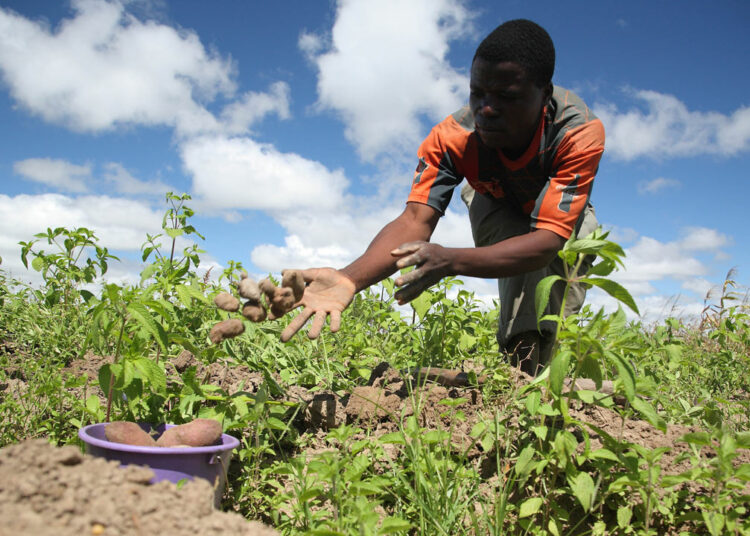Stakeholders in the South-South have brainstormed on how farmers can ensure food sufficiency and access to farm products and services, which will translate to food security in Nigeria.
At a strategic meeting in Asaba, Delta State, coordinated by AFRITROPIC Farming and Agro Services Limited, yesterday, farmers from Bayelsa, Delta, Rivers, Cross River, Ondo and others, agreed that everything must be done to achieve food security in Nigeria.
Ebimoboere Eniyekpemi, South-South coordinator of Seed Entrepreneur Association Nigeria (SEEDAN), said their aim is to ensure a sustainable food system in the South-South and Nigeria at large.
While emphasizing on giving farmers updated agricultural information and value in order to get business and social profits, she stated that everything needed to be done to make farmers happy through synergy between them and AFRITROPIC.
“It is possible to affect Nigeria and the continent from Delta State. We want more farmers to buy and grow the seed all in an attempt to achieve food security.
“Farmers cannot just process; they should know whether it is hybrid or local. We want to make sure healthy crops suppress all diseases. If we want food security, there should be an irrigation system, not only depending on rainwater,” Eniyekpemi stated.
Also, president Women in Agriculture Network, (WAN), Mrs Eze-Owenz Fidelia, lamented the bureaucracy in assessing funds meant for agriculture and the generalisation of planting seasons between the north and south in Nigeria.
She also faulted the usage of wrong vendors, profiling of uncommitted farmers, noting that soil and seed are fundamental if farmers are to harvest well especially in tomatoes, maize, rice, and others.
“There is need to train farmers and give them advise on irrigation, hybrid seed, soil health organic and inorganic soil, farm timely spraying/diseases, soil building, get NAFDAC, NIN, BVN, Account details and other approvals, input assistance, working capital, and others,” she said.
In his contribution, the CEO, AgriEco Resources Foundation (AERF), Martin Eyomiowei, assured that off-taking should not be a problem to the farmers but their profile, what they grow, their breeds and needs.
“The foundation wants to start with 16 communities in one year in Niger Delta states, four communities per quarter, 30 farmers in a community which will cluster them into smaller numbers,” he said.











